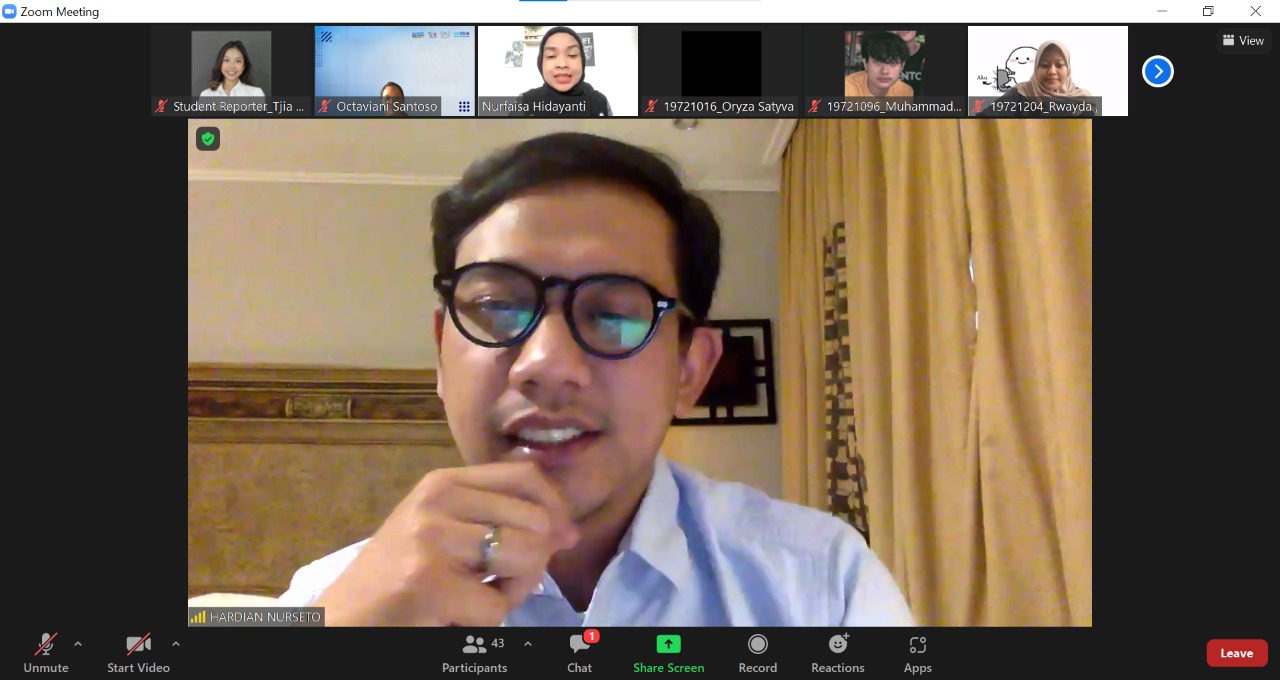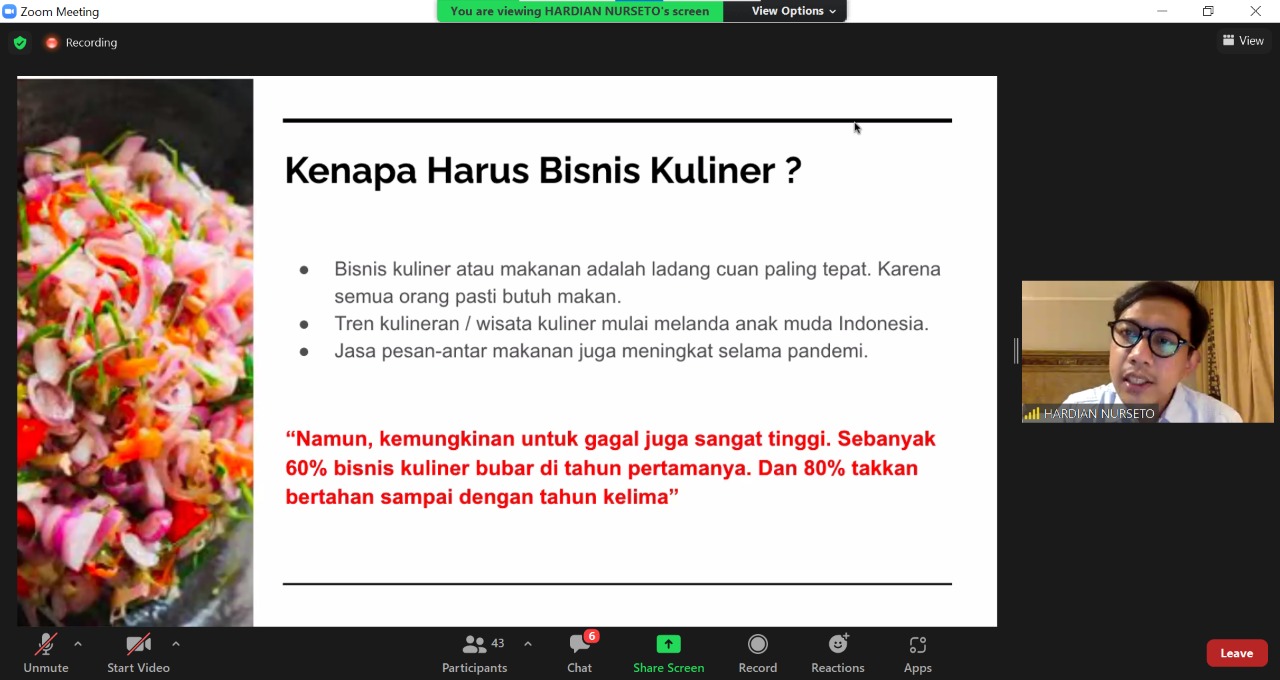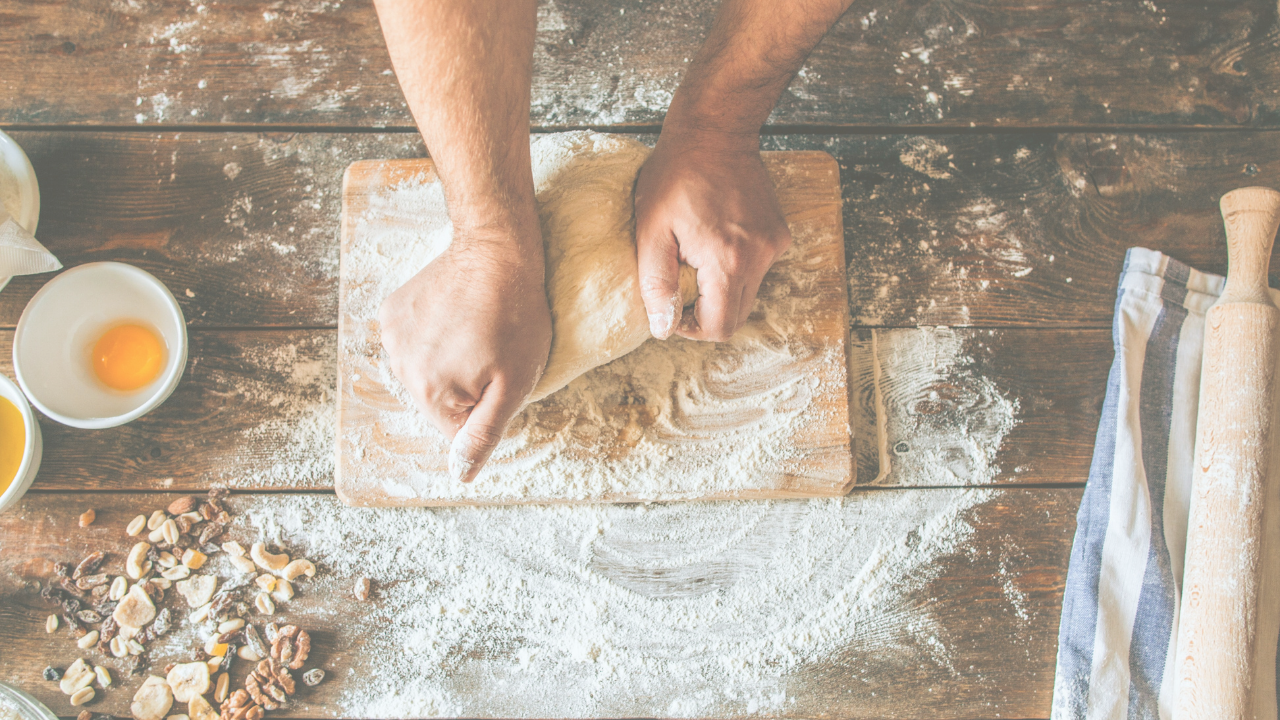Hardian Eko Nurseto or commonly known as Seto, a lecturer at the Department of Anthropology at Padjadjaran University Bandung who also teaching the subject “Food and Culture,” was a guest lecture discussing culinary business at the School of Business and Management, Bandung Institute of Technology, Tuesday (15/2/2022).
 “Even so, I have also failed in establishing a culinary business,” said Seto in the opening of his lecture when explaining his background in culinary literacy. He is the founder of the Gastronomical Party (a community focusing on documenting Indonesia’s gastronomic abundance), part of the management of the Culinary Syndicate (a community of restaurant and cafe owners in Bandung), and the founder of the Bandung Food Truck Community, a forum for entrepreneurs in Bandung.
“Even so, I have also failed in establishing a culinary business,” said Seto in the opening of his lecture when explaining his background in culinary literacy. He is the founder of the Gastronomical Party (a community focusing on documenting Indonesia’s gastronomic abundance), part of the management of the Culinary Syndicate (a community of restaurant and cafe owners in Bandung), and the founder of the Bandung Food Truck Community, a forum for entrepreneurs in Bandung.
 Seto opened his lecture by emphasizing that creating a culinary business is the most appropriate way to make money because of the human need for food. In addition, culinary trends or culinary tourism are starting to hit Indonesian youth, not forgetting food delivery services that have also been increasing during the pandemic.
Seto opened his lecture by emphasizing that creating a culinary business is the most appropriate way to make money because of the human need for food. In addition, culinary trends or culinary tourism are starting to hit Indonesian youth, not forgetting food delivery services that have also been increasing during the pandemic.
However, Seto also revealed that the possibility of failure in the culinary world is also very high. Sixty percent of culinary businesses disband in the first year; even 80% will not survive up to the fifth year.
Seto also provided tips and tricks to build a sustainable culinary business. They are identifying the culinary business to be built, thorough preparation before starting the business, and knowing the market, culinary scene, and consumers’ needs. In addition, four main keys must be considered by business owners when pursuing their culinary business, i.e., product, brand, marketing, and finance. With a strong product, consistency and product testing and improvement, we can strengthen the core of our business (the product, food, or beverage itself). Seto also provided examples of the colors used by well-known companies to become a strong brand and marketing for their consumers. Finally, Seto also explained the importance of calculating finances in a culinary business.




